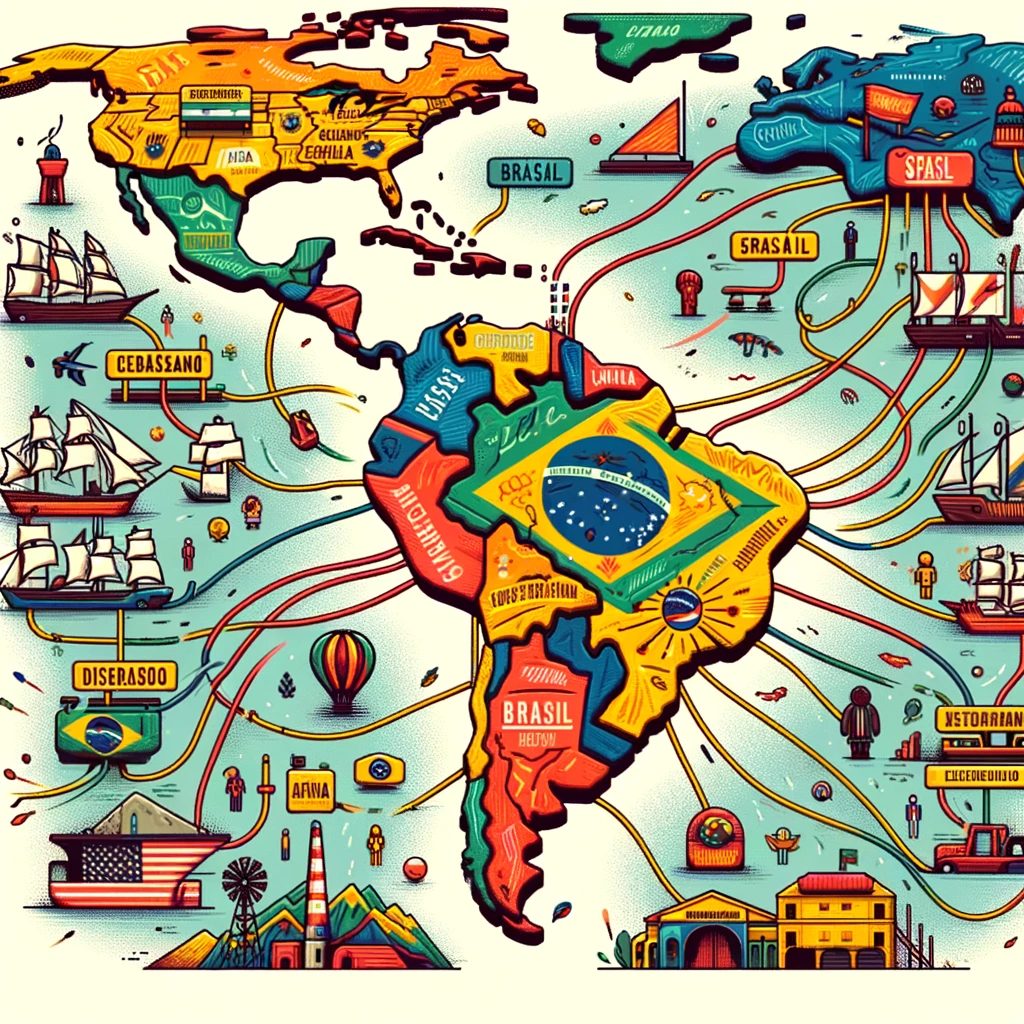
Brazil, Historically recognized as a leader in South America, currently faces significant challenges in its foreign policy, reflecting a reduced ability to influence regional events. Analyzing recent developments, we can observe how the current Brazilian administration deals with complex issues involving neighboring countries, like Venezuela, Argentina and Uruguay, each presenting different scenarios.
The relationship with Venezuela, under the government of Nicolás Maduro, remains a critical point. Historically, the two countries maintained strong ties, but recent internal political tensions in Venezuela and international criticism of the Maduro regime pose challenges to Brazilian diplomacy. Despite being ideological allies, Brazil's inability to influence or moderate the behavior of the Venezuelan government highlights a weakness in Brazil's regional leadership.
No case from Argentina, bilateral relations are going through a delicate moment. With the election of a new Argentine government, aligned with a divergent political vision from the current Brazilian administration, potential difficulties arise. This is reflected, for example, in trade negotiations and discussions about Mercosur, where the interests of the two countries are not always aligned.
Uruguay, another important partner in Mercosur, has also questioned Brazilian action in the bloc. Recently, there were debates about common external tariffs and the flexibility of bilateral trade negotiations, themes in which Brazil plays a central role. The Uruguayan position, seeking greater autonomy in external negotiations, suggests a perception that Brazilian leadership may be limiting the commercial ambitions of the bloc's smallest members.
In addition to these specific examples, Brazilian foreign policy faces the challenge of balancing historical relations with the need to adapt to a constantly changing global scenario. China's growing influence in the region, for example, offers both opportunities and challenges for Brazil, in terms of maintaining its leadership position.
Brazil's ability to maintain its influence in South America depends on a diplomatic approach that can balance national interests with the need for regional cooperation. Current foreign policy, facing criticism and questions, shows that this is not an easy task. However, It is crucial for the country to seek strategies that strengthen its bilateral and regional relations, promoting an environment of dialogue and mutual understanding.
To complete, Brazilian leadership in South America is at a time of redefinition. The difficulties faced in relations with Venezuela, Argentina and Uruguay are reflections of a broader context, in which Brazil needs to reevaluate its foreign policy and its ability to positively influence the regional scenario. The effectiveness of this leadership will be measured by the country's ability to navigate these challenges, maintaining a balanced and proactive stance in the South American scenario.
